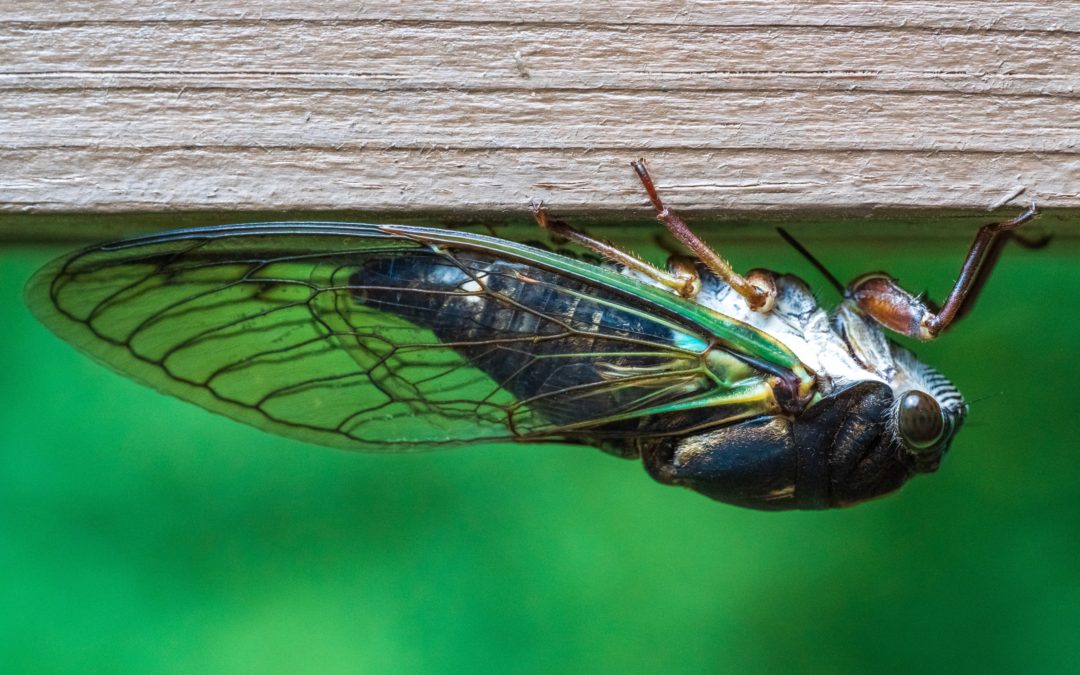There is quite a “buzz” about the arrival of the cicada Brood X in the Washington DC area right now. Last seen 17 years ago, billions of cicadas (1.5 million per acre) in Brood X will soon appear in 14 states, with DC, Maryland, and Virginia at the epicenter.
When the ground temperature reaches 64 degrees, the cicada nymphs will begin to crawl out of the ground, where they have been waiting for 17 years, to to lay their eggs on tree branches. Their sheer numbers overwhelm predators. Birds, snakes and other predators get so full of cicads that they just can’t eat any more. This is just one of the evolutionary benefits of coming out in such massive numbers. Of course, as with many natural cycles, climate change may be interrupting the rhythm. Large numbers of Brood X “stragglers” actually arrived 4 years early, in 2017. Scientists speculate that these “stragglers” could end up starting their own brood. It is unclear what impact this could have on the cicada population over time, or the ecosystem services they provide.
Although their presence can be a bit overwhelming, according to the National Wildlife Federation, cicadas are good for the environment. “They prune mature trees, aerate the soil, and once they die, their bodies serve as an important source of nitrogen for growing trees. When cicadas come out, they’re eaten by just about anything with an insectivorous diet.”
This is terribly important as insect populations are declining globally. In an article “Plummeting insect numbers threaten collapse of nature’ from 2019, the Guardian reports, “More than 40% of insect species are declining and a third are endangered, the analysis found. The rate of extinction is eight times faster than that of mammals, birds and reptiles. The total mass of insects is falling by a precipitous 2.5% a year, according to the best data available, suggesting they could vanish within a century.”
If you were around when Brood X emerged before, I’m sure you, like me, will never forget the deafening sound. The noise of the cicada at full steam can reach 100 decibels, just shy of a chainsaw or leaf blower. Nature often gently offers that we stop and listen in order to hear her sounds and see her beauty. With cicadas we really have no choice. The fact that they come in such numbers, so infrequently, and with such fanfare makes the event even more striking. In a few weeks, will certainly hear the cicadas. Will we pay attention?
